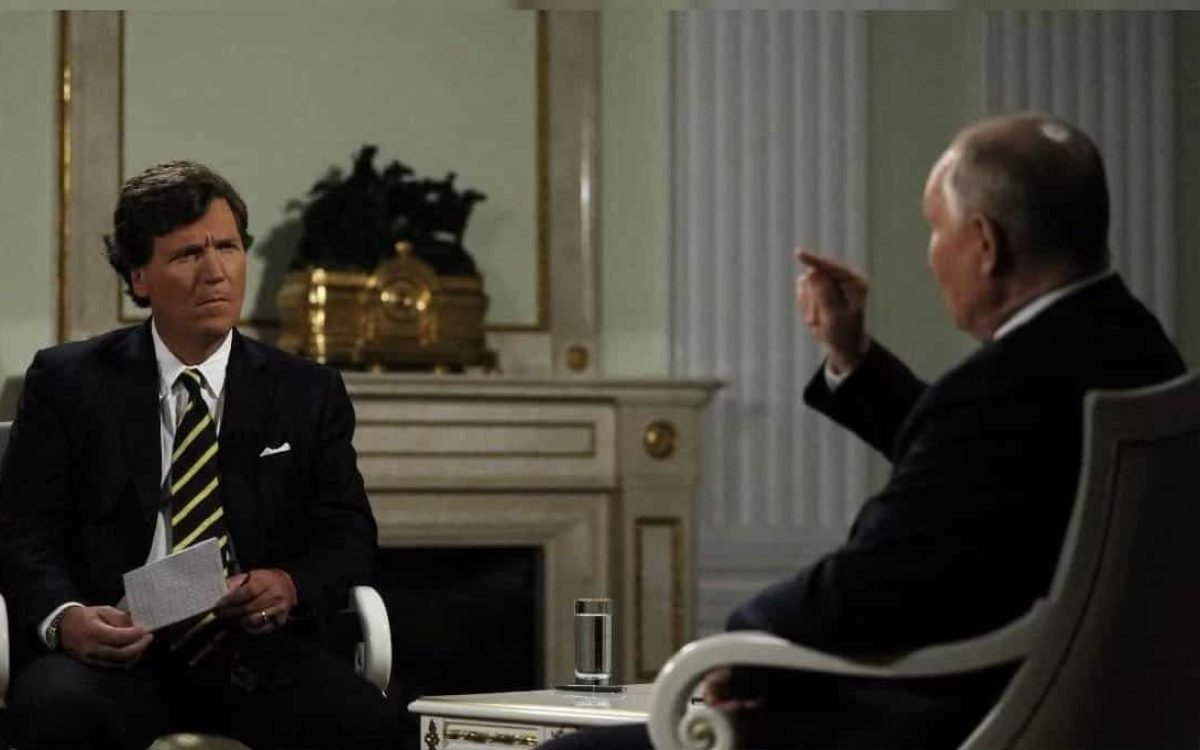Russian President Vladimir Putin made headlines on Thursday (Feb 8) after granting a rare interview to an American journalist, Tucker Carlson. During the one-on-one exchange, Putin, known for his sharp wit, took a jab at Carlson’s past association with the CIA.
In a moment of levity, Putin mocked Carlson for reportedly being rejected by the CIA, quipping, “We should thank God they didn’t let you in.” This playful banter unfolded as Putin discussed the 2014 Ukrainian Maidan revolution, suggesting CIA involvement in the ousting of pro-Moscow Ukrainian President Viktor Yanukovych.
Putin’s background as a former foreign intelligence officer for the KGB added weight to his jest, as he served 15 years in the organization, including a stint in Dresden, East Germany. The rivalry between Russia’s KGB and America’s CIA has long been a staple of geopolitical intrigue, mirroring the historical tensions of the Great Game.
The interview took a serious turn when Putin addressed the sabotage of the Nord Stream undersea gas pipelines, linking Germany, Finland, and Russia. Putin insinuated that the CIA or NATO may have been behind the attacks in the Baltic Sea in September 2022. When Carlson jokingly claimed innocence, Putin retorted, “The CIA has no such alibi,” hinting at the agency’s perceived capabilities.
Putin’s unsubstantiated allegations against the US underscored the deep-seated distrust between Russia and the West, particularly amidst geopolitical tensions and proxy conflicts. While the interview provided a rare glimpse into Putin’s mindset and geopolitical worldview, it also served as a reminder of the enduring rivalry between major intelligence agencies and the complex dynamics of international relations.
As Putin continues to navigate Russia’s role on the global stage, his candid remarks and strategic maneuvers will undoubtedly shape the geopolitical landscape for years to come. In the meantime, Putin’s exchange with Carlson offers insight into the intricate dance of diplomacy, power dynamics, and espionage that define contemporary geopolitics.









